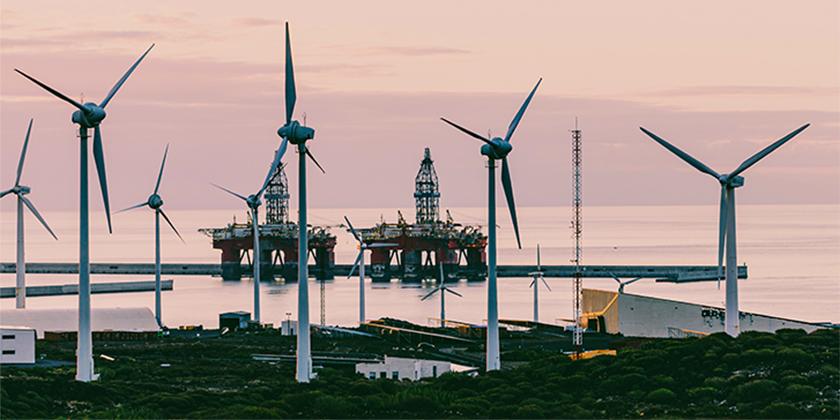
The green transition will drive an acceleration of investment in renewables, energy efficiency and clean energy solutions, as more and more stakeholders pivot away from carbon-intensive assets. But for nimble investors, with shorter return horizons, there are lots of valuable investment opportunities in traditional fossil fuels in the medium term.
While world leaders have been gathering for COP meetings for decades, what made COP26 perhaps particularly notable is that the private sector also gathered in force, and with a commitment and determination to be a key driver in the decarbonisation of the world’s economies.
In previous years, there have been murmurings from various corporates that to make social or environmentally driven investment decisions may not align with their fiduciary duty to act in the interests of shareholders. As shareholder activism has driven the debate into boardrooms from above, this attitude is rapidly reversing direction. While returns are generally seen as lower in the clean sector compared to, say, the oil & gas sector, being invested in the green transition is increasingly seen as a key route to preserving and protecting shareholder value.
At the same time, voluntary and mandatory climate related disclosures are aligning the drivers for investors across the board so that capital is increasingly driven by the metrics they produce. This is being reflected in, among other things, the plummeting cost of capital for green investments. At the same time high carbon intensive investments, such as coal based projects and businesses, are struggling to secure funding, with many facing insolvency.
Investments in the energy transition, a key part of the green transition, will principally take the form of M&A. The outcome of COP26 and the momentum it has generated means that European dealmakers in the energy sector will be even busier in 2022. Europe leads the world in the energy transition and the race to net zero is driving near-record levels of dealmaking – notably in wind and solar photovoltaic generation.
At the same time, the energy transition is both expanding and fragmenting the energy sector. For many, it has traditionally been focused on energy generation. The transition is bringing to the fore less visible technologies. Everything from traditional hydropower to grid-scale batteries, electrification of transport and hydrogen. It is also bringing into the mix sectors that have not traditionally been focused on energy, such as industrial decarbonisation, shipping and mining for the natural resources needed for the energy transition.
In parallel with this, there is a huge and growing story around energy transmission and distribution. Electricity networks will need to expand massively to facilitate electrification and new technologies. They are also becoming smarter with the use of digital technology to optimise the way power is distributed, traded and consumed. Further, new types of networks may provide investment opportunities for those looking for stable long term assets, such as hydrogen and carbon networks.
Against this background, traditional fossil fuel-based players are decarbonising their operations. For the oil and gas majors, this means acquiring or significantly enhancing their capabilities in renewables, including wind, solar and hydrogen, while simultaneously divesting selected carbon-intensive assets in response to mounting ESG pressures. This may be one of the reasons why 50% of respondents in our study point to distress-driven deals as a top sell-side driver.
Change is endemic in the energy sector, but the current transition makes the years since liberalisation of energy markets in the late 1980s seem almost steady-state in comparison. Despite the momentum and push for capital to be invested in the energy transition, there remain obstacles, not least the limited pipeline of good quality investment opportunities, continuing concerns over lockdowns and COVID-19 variants, financing difficulties arising from potentially unstable long term revenue streams and diminishing rates of return. Notwithstanding these challenges, our study finds that energy sector M&A will increasingly be an engine driving capital into propositions that match social and political ambitions for the green transition.
Key findings
- Energy remains a premium asset class for most institutional investors, with its performance during the pandemic and impetus from COP26 further enhancing its attractiveness
- 75% of energy companies are considering an acquisition and/or divestment in 2022
- Alongside premium assets, in some subsectors there are undervalued targets driving buy-side activity, with sellers shedding distressed assets as the sector shifts in response to the energy transition
- 45% think COVID-19 will be a major M&A obstacle in 2022, but this remains a fluid situation that can change rapidly













